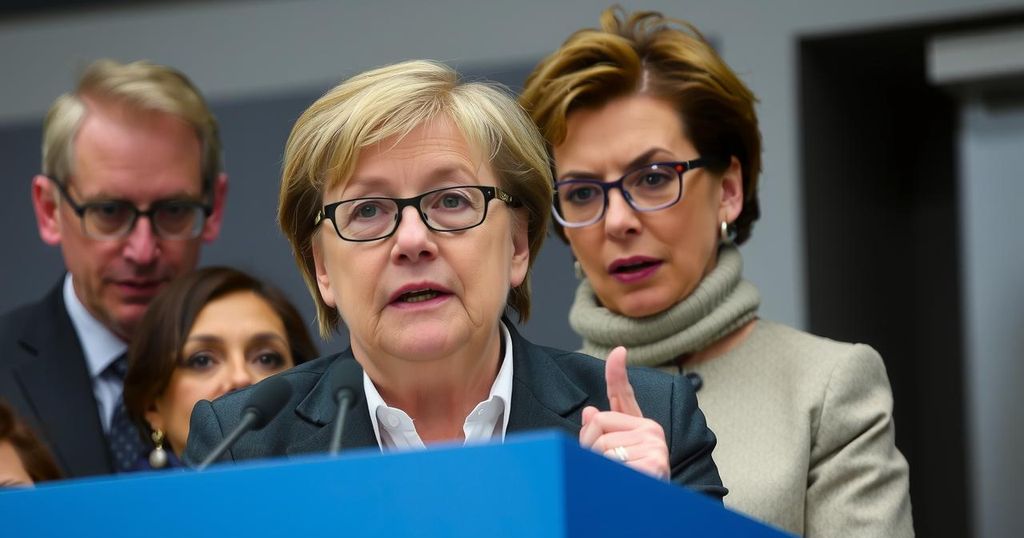Elon Musk Accused of Influencing German Federal Elections Through AfD Endorsement

Elon Musk faces backlash in Germany after endorsing the far-right AfD party, prompting government officials to accuse him of attempting to influence the upcoming federal elections. His assertions in a German newspaper have ignited debates regarding the limits of free speech and the implications of foreign interference in national politics, particularly concerning extremist ideologies.
The German government has accused Elon Musk, the prominent billionaire and CEO of Tesla, of attempting to sway the upcoming federal elections through his published support for the Alternative for Germany (AfD), a far-right political party. A spokesperson for the government stated that Musk’s actions represent an influence on the electoral process, which is set to occur in February. While acknowledging Musk’s right to express his views, the official commented, “After all, freedom of opinion also covers the greatest nonsense.” Musk had declared in a commentary featured in the Welt am Sonntag newspaper that the AfD is “the last spark of hope for this country” and that they could secure Germany’s future prosperity and cultural integrity.
Musk’s commentary, which sparked significant media debate regarding free speech in Germany, echoed a prior social media post where he stated that only the AfD could rescue Germany. He further emphasized that as an investor in the country, he felt entitled to share his perspective on its societal conditions. Additionally, Musk’s involvement with right-wing politics is not new, having supported Donald Trump’s electoral campaign and been credited with energizing some voter bases during the campaign.
The backlash against Musk’s statements has ignited discussions concerning the implications of foreign influence in national politics, particularly in a country historically sensitive to the ramifications of extremist ideologies. The AfD has faced ongoing scrutiny, with dissenters labeling it extremist despite its leadership structure indicating otherwise. Consequently, Musk’s comments have brought renewed attention to the complexities surrounding political discourse and freedom of expression in contemporary society.
The discourse surrounding Elon Musk’s support for the AfD emerges within the broader context of political dynamics in Germany, particularly prior to elections that hold significant weight in determining the country’s future. Musk, known for his pronounced opinions and involvement in various political matters, has previously engaged in similar endorsements, leading to controversies surrounding foreign sovereign influences in domestic elections. The AfD, which Musk supports, has endured scrutiny due to its nationalist and populist positions, igniting debates about the line between opinion and political interference.
In conclusion, Elon Musk’s endorsement of Germany’s AfD has drawn sharp condemnation from German officials who allege that he seeks to influence the country’s electoral future. His remarks on social media and in a major newspaper highlight the increasing intersection of international business, personal opinion, and political affairs. The ongoing discussions around such endorsements emphasize the delicate balance between freedom of expression and the potential ramifications of foreign influence in national politics.
Original Source: www.hindustantimes.com








